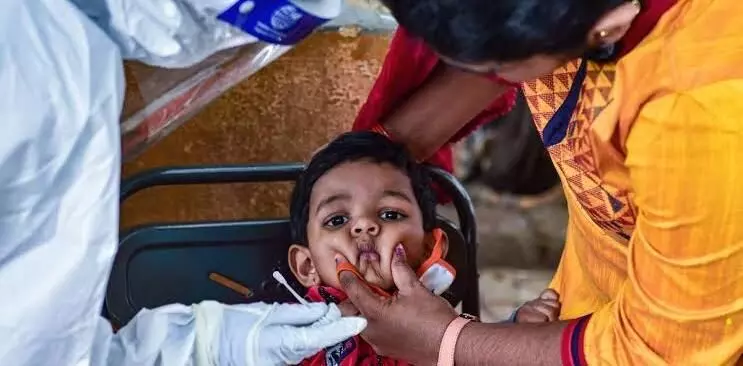
Centre says no proof to predict COVID 3rd wave will be detrimental to kids
text_fieldsNew Delhi: Taking note of misinformation's crucial role in vaccine hesitancy, the Centre on Friday said there is no scientific evidence to prove that the impending third wave of coronavirus disease will have a detrimental effect on children.
The Centre also warned people to stay away from such misinformation, which has been on the rise since the outbreak of the pandemic.
Dr Sanjay Kumar Rai, president of the Indian Public Health Association and professor at the Department of Community Medicine, AIIMS, was speaking on disinformation and misinformation during the Infodemic Pandemic eSummit.
"The combination of misinformation and disinformation, which is called infodemic, has been happening since the outbreak of the Covid-19 pandemic. However, the recent example of misinformation is that - the third wave of covid will impact children - this is complete misinformation as there is no scientific basis behind it."
It has been widely claimed that children will be infected the most during the third COVID-19 wave. While some kids were affected during the second wave, almost 90 per cent of the infections, so far, have been mild or asymptomatic.
This was also echoed by the Indian Academy of Paediatrics (IAP) which noted that although children remain susceptible to infection, it was "highly unlikely that the third wave will predominantly or exclusively affect children".
The experts further stated that the onset of Covid-19 also led to an overabundance of information, impacting the mental health of people. This was further exacerbated by the lockdowns and other restrictions.
"There is fear and uncertainty associated with Covid-19, anxiety, and distress caused by lockdowns and social distancing, limited access to mental health services -- and this is all due to the misinformation and disinformation surfacing around," National Institute of Mental Health & Neurosciences' (NIMHANS) Centre for Psycho-Social Support in Disaster Management head, Prof K. Sekar, said.
Interestingly, the World Economic Forum cautions overabundance of information as digital wildfires, JNU's Centre of Social Medicine & Community Health Chairperson Dr Rajib Das Gupta said.
"The Covid rumour waves started as early as the third week of January and the second rumour surfaced in the month of February. There has been confusion around, and all forms of media are pumping the information but all are not credible. There has been a very complex situation as a multitude of activities is going on. There is a lack of risk communication," Das Gupta said.
The experts noted that misinformation also plays a role in vaccine hesitancy.
























